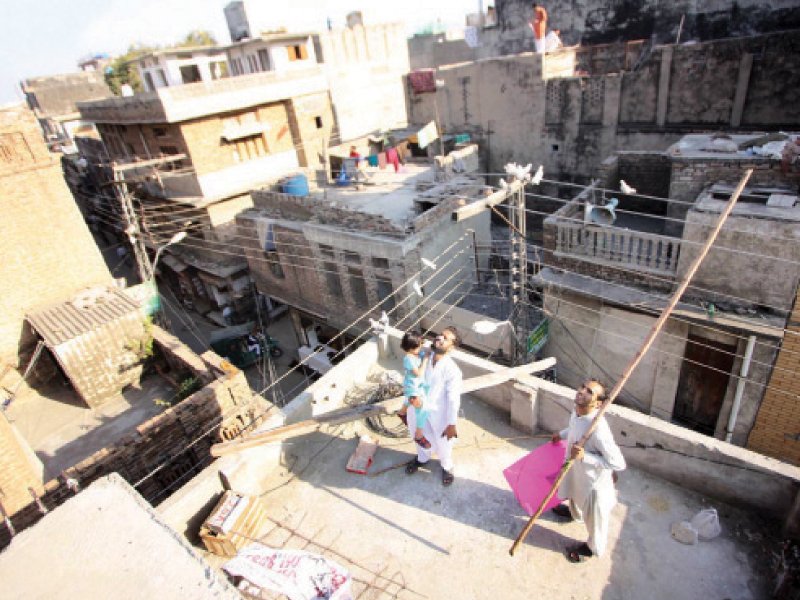Punjab considers revival of Basant with safety conditions
'The safety of human lives remains the Punjab government's top priority,' said Punjab Home Secretary

A high-level consultative meeting chaired by Punjab Home Secretary Dr. Ahmad Javed Qazi, was held at the Home Department to examine the feasibility of organising a “safe Basant” under strict conditions.
"The safety of human lives remains the Punjab government's top priority," said Dr. Qazi, emphasising that any form of kite-flying that poses a danger to life will not be tolerated. He made it clear that while Basant festivities have a cultural significance, they cannot come at the cost of safety.
Director General Walled City of Lahore Authority Najam-ul-Haq, Commissioner Lahore Maryam Khan, and Additional Secretary of Home Department were present at the meeting.
Read: Basant: The vibrant festival that turned bloody
The meeting included a detailed discussion on proposed amendments to the law that currently bans kite flying in the region. Potential solutions for celebrating Basant safely were explored, ensuring the protection of human lives. The gathering reviewed suggestions for a conditional and limited approval for kite flying during specific days in specific districts of the spring festival.
"Those involved in illegal kite flying and sales without proper authorization will face hefty fines and long-term imprisonment," warned the officials, underlining the seriousness of enforcing these safety measures.

Certain items were prohibited, including the use of metallic strings or “manja” (glass-coated kite string). Kite manufacturers and suppliers would need to register with the Deputy Commissioner’s office to ensure accountability. Violation of regulations could lead to the cancellation of the registration, along with penalties and possible imprisonment. "An affidavit confirming the safety measures must be provided by the property owner or organizer where kite flying will take place," stated the proposal.
Read more: Basant celebration turns bloody in Rawalpindi
A representative from civil society emphasized that "the safe celebration of Basant could create jobs and boost tourism, while also maintaining the cultural spirit of the festival." Proponents of the festival believe that the revival of Basant could provide significant economic benefits.
Representatives from Lahore Electric Supply Company (LESCO) presented data on the potential dangers posed by kite flying, citing past incidents involving power lines and injuries. However, organizers reiterated that open, unrestricted kite flying would not be allowed, and the focus would be on controlled environments with necessary safety protocols in place.
The Lahore Walled City Authority (WCLA) will conduct a public survey to gauge community opinion on the matter.
Also read: Fresh casualties dampen hopes for revival of Basant festival
Basant has a long and rich history, originating as a Sanskrit word for "spring" and traditionally celebrated as a Hindu festival honoring the goddess Saraswati. It evolved into a major cultural event in Lahore, famously known as the "king of festivals," marking the arrival of spring with vibrant kite flying, music, and the wearing of yellow.
The introduction of metallic and chemically-treated kite strings, which are razor-sharp, turned a celebratory festival into a public safety hazard, leading to severe injuries and fatalities from throat slashes.
The Punjab government had to enforce a strict ban with severe penalties, including multi-year prison sentences and heavy fines for manufacturing, selling, or flying kites. Basant was first banned in Pakistan in 2007 following the deaths of hundreds of people, mostly children. The ban was briefly lifted in 2018 but immediately reimposed following dozens of casualties.
While some advocates call for a regulated revival using safe materials, the authorities have remained firm, leaving the future of the Basant festival. However, recent developments might suggest otherwise.





1733130350-0/Untitled-design-(76)1733130350-0-208x130.webp)















COMMENTS (2)
Comments are moderated and generally will be posted if they are on-topic and not abusive.
For more information, please see our Comments FAQ